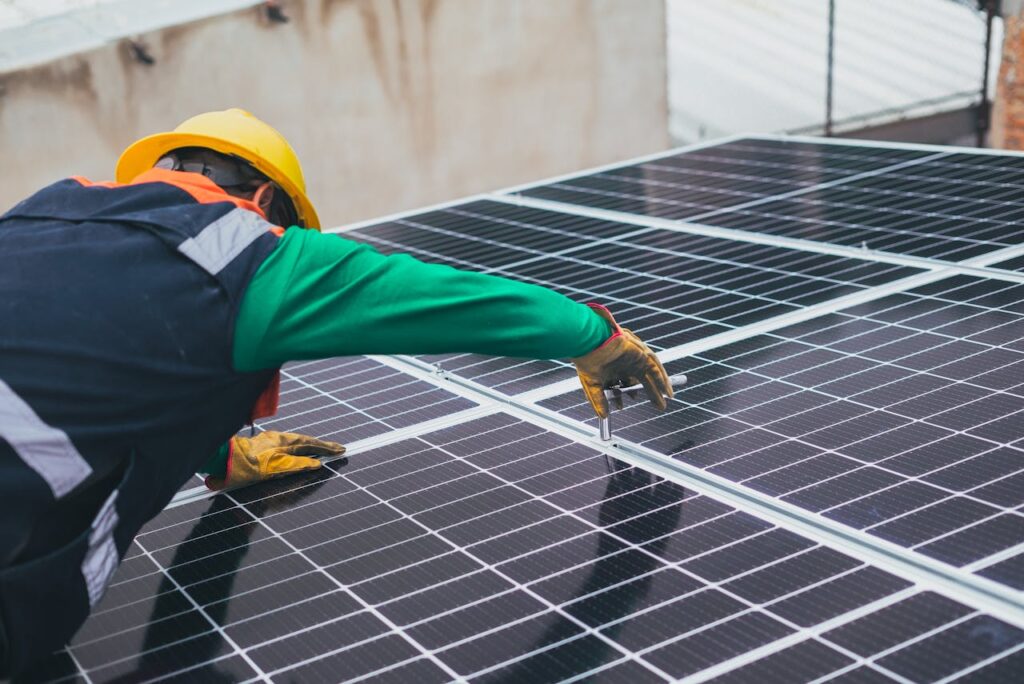
Electrical systems are integral to modern life, powering everything from the lights to the appliances that make our daily routines easier. However, with this reliance comes the potential for mistakes that can lead to dangerous situations. Electrical errors in the home can result in anything from blown fuses to serious electrical fires, and it’s essential for homeowners to recognize and avoid these common mistakes. In this article, we will explore some of the most frequent electrical mistakes people make and provide advice on how to prevent them.
1. Ignoring Circuit Overloads
One of the most common electrical mistakes is overloading circuits by plugging too many devices into a single outlet or power strip. Overloading a circuit can cause overheating, which may lead to electrical fires or the tripping of circuit breakers. While using one outlet for multiple appliances might seem harmless, it puts the circuit at risk of failure.
How to Avoid It:
- Distribute your electrical load: Do not place too many devices on a single outlet. Also, avoid connecting too many high-wattage appliances (like space heaters or toasters) to the same circuit.
- Use high-quality power strips: If you need to connect multiple devices to an outlet, use a power strip with a built-in surge protector. These power strips have an internal fuse that helps prevent circuit overloads.
- Hire a licensed electrician: If you consistently experience tripped breakers or notice outlets overheating, it’s time to call a professional. An electrician can assess your home’s wiring and add additional circuits or upgrade your electrical panel if needed.
2. DIY Electrical Work
With the abundance of online tutorials and “how-to” guides, many homeowners may be tempted to tackle electrical repairs or installations themselves. While some minor electrical tasks may be within reach for the average DIYer, handling more complicated work without proper knowledge can lead to dangerous situations. Incorrectly installed outlets, improperly wired switches, or faulty connections can pose risks of electrocution or fire.
How to Avoid It:
- Know your limits: If you are unsure how to perform an electrical task or if the job involves more than changing a light bulb or installing a basic light fixture.
- Call a licensed electrician: Hiring a professional electrician ensures your electrical system will be installed and maintained according to safety codes. Electricians are well-trained and know how to work safely with electricity.
3. Overusing Extension Cords
Extension cords are convenient when you need extra reach for an appliance or device, but they are often used improperly. Leaving extension cords plugged in for long periods or running them under carpets and furniture can lead to overheating, wear, and even fire hazards. Overloading extension cords or using them with high-power appliances also poses significant risks.
How to Avoid It:
- Use extension cords temporarily: Extension cords should be used for short-term purposes, not as a permanent solution for lack of outlets.
- Choose the right extension cord: Make sure to choose an extension cord rated for the electrical load of the devices you plan to plug into it. High-wattage appliances require extension cords that can handle the higher power demands.
- Inspect cords regularly: Check extension cords for damage, fraying, or signs of wear. Replace damaged cords immediately.
- Do not hide cords: Do not run extension cords under carpets, rugs, or furniture, where they can become overheated or damaged.
4. Using the Wrong Bulb Wattage
Many homeowners are unaware that using a light bulb with too high a wattage for a fixture can lead to overheating and increase the risk of fire. Each light fixture and lamp has a recommended maximum wattage, and exceeding that limit can cause the socket to overheat, potentially igniting nearby flammable materials.
How to Avoid It:
- Check the manufacturer’s recommendations: Always check the fixture’s specifications before changing a light bulb. Typically, this information is printed on the socket or included in the fixture’s user manual.
- Choose the right wattage: Use bulbs matching each fixture’s recommended wattage. If you need more light, consider using energy-efficient LED bulbs, which provide more light for less energy and typically don’t generate as much heat.
- Upgrade fixtures: If you need higher lighting output, replace the fixture with one that can handle higher wattage or upgrade to modern, high-lumen LED fixtures.
5. Not Installing Ground Fault Circuit Interrupters (GFCIs)
Ground Fault Circuit Interrupters (GFCIs) are critical safety features in homes, especially in areas with higher moisture levels, such as bathrooms, kitchens, and outdoor spaces. These devices prevent electrical shock by shutting off power when they detect a ground fault. However, many older homes still lack GFCIs in these areas, leaving homeowners vulnerable to serious electrical hazards.
How to Avoid It:
- Install GFCIs: If your home does not have GFCIs installed in bathrooms, kitchens, garages, or exterior outlets, they must be added. A licensed electrician can install these devices to ensure your home meets modern safety standards.
- Test your GFCIs regularly: Make sure your GFCI outlets are working properly by pressing the “test” button and resetting them. If they do not reset, contact an electrician for further inspection.
6. Failing to Maintain Electrical Panels
An often-overlooked mistake is neglecting to maintain the electrical panel, which acts as the control center for your home’s electrical system. Over time, a panel can accumulate dust or dirt, or its components can wear out. An outdated panel may struggle to handle the electrical demands of modern appliances, and malfunctioning circuit breakers can cause electrical fires.
How to Avoid It:
- Schedule regular inspections: Have an electrician inspect your electrical panel periodically to ensure everything works. They can clean the panel, replace faulty breakers, and identify potential issues before they become serious problems.
- Upgrade your panel: If your electrical panel is outdated or you are adding significant electrical loads (such as new appliances or an electric vehicle charger), you may need to upgrade it to ensure it can safely handle the increased demand.
7. Not Having Smoke Detectors and Carbon Monoxide Detectors Installed
Although not directly an electrical mistake, failing to install or maintain smoke and carbon monoxide detectors can compound electrical hazards. Faulty wiring can cause electrical fires, and carbon monoxide poisoning can result from gas appliances. Smoke and carbon monoxide detectors are essential safety devices that should be in every home.
How to Avoid It:
- Install detectors in key areas: Place smoke detectors in every bedroom, hallway, and on each floor of your home. Also, install carbon monoxide detectors near bedrooms and major gas appliances.
- Test and maintain detectors: Regularly test the detectors to ensure they’re working, and replace the batteries twice a year. If your detectors are over 10 years old, replace them with new ones.
8. Misusing or Overloading Breakers
A circuit breaker protects the wiring in your home from overloads by interrupting the electrical flow when a circuit is about to be overloaded. However, homeowners sometimes reset circuit breakers without addressing the underlying issue, such as an overloaded circuit. Repeatedly resetting the breaker without fixing the problem can lead to permanent damage to the circuit or even a fire.
How to Avoid It:
- Don’t ignore tripped breakers: If a circuit breaker trips, don’t just reset it without figuring out the cause. Try to determine if there’s an overload or a malfunctioning device.
- Avoid “stacking” breakers: Some homeowners may install a “double tap” breaker, connecting two wires to one breaker. This can cause the breaker to trip or even fail, creating a dangerous situation.
- Have an electrician inspect the panel: If breakers continue to trip, have an electrician inspect the system. They can upgrade or repair the panel or add additional circuits to handle the load.
9. Exposed or Damaged Wiring
Exposed or damaged wiring is one of a home’s most dangerous electrical hazards. Frayed wires can lead to electrical shocks or fires, particularly when they are in high-traffic areas or near moisture.
How to Avoid It:
- Inspect wiring regularly: Check visible wires around your home for signs of damage, fraying, or wear. If you notice exposed or damaged wiring, contact an electrician to have it replaced or repaired.
- Cover exposed wiring: Use wire covers or conduit to protect exposed wiring, especially in areas where it’s likely to be touched or damaged.
10. Neglecting Regular Electrical Inspections
Just as with any home system, regular maintenance is essential to ensure your electrical system’s continued safe and efficient operation. Many homeowners neglect to inspect their electrical systems, leading to undetected issues and unnecessary risks.
How to Avoid It:
- Schedule regular electrical inspections: An electrician should inspect your electrical system every 3-5 years, especially in older homes. This will help identify potential problems before they become safety hazards.
Conclusion
Electricity powers much of our daily lives but can also be extremely dangerous if not handled properly. By avoiding these common electrical mistakes and taking proactive steps to ensure your home’s electrical system is in good condition, you can reduce the risk of hazards such as fires, shocks, and electrocution. Always prioritize safety, and consult a licensed electrician to address more complex issues when in doubt. Maintaining a safe and functional electrical system in your home is essential for convenience and peace of mind.









